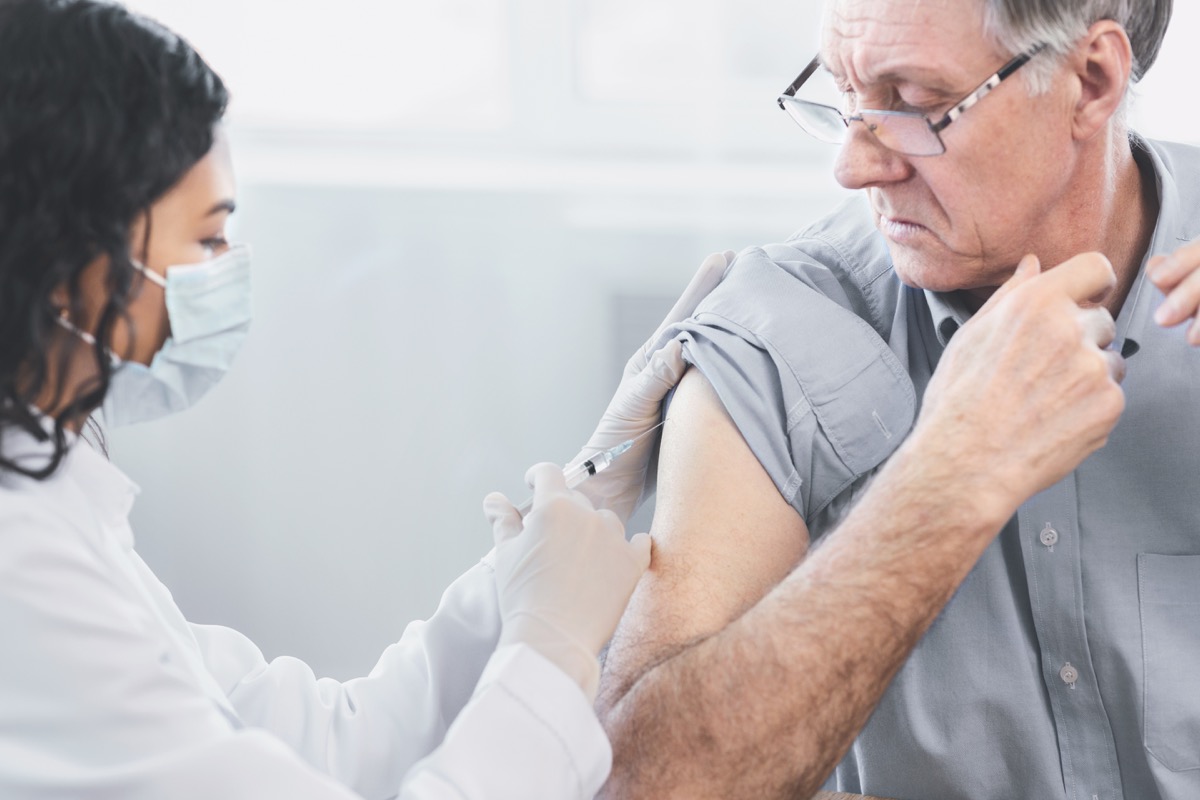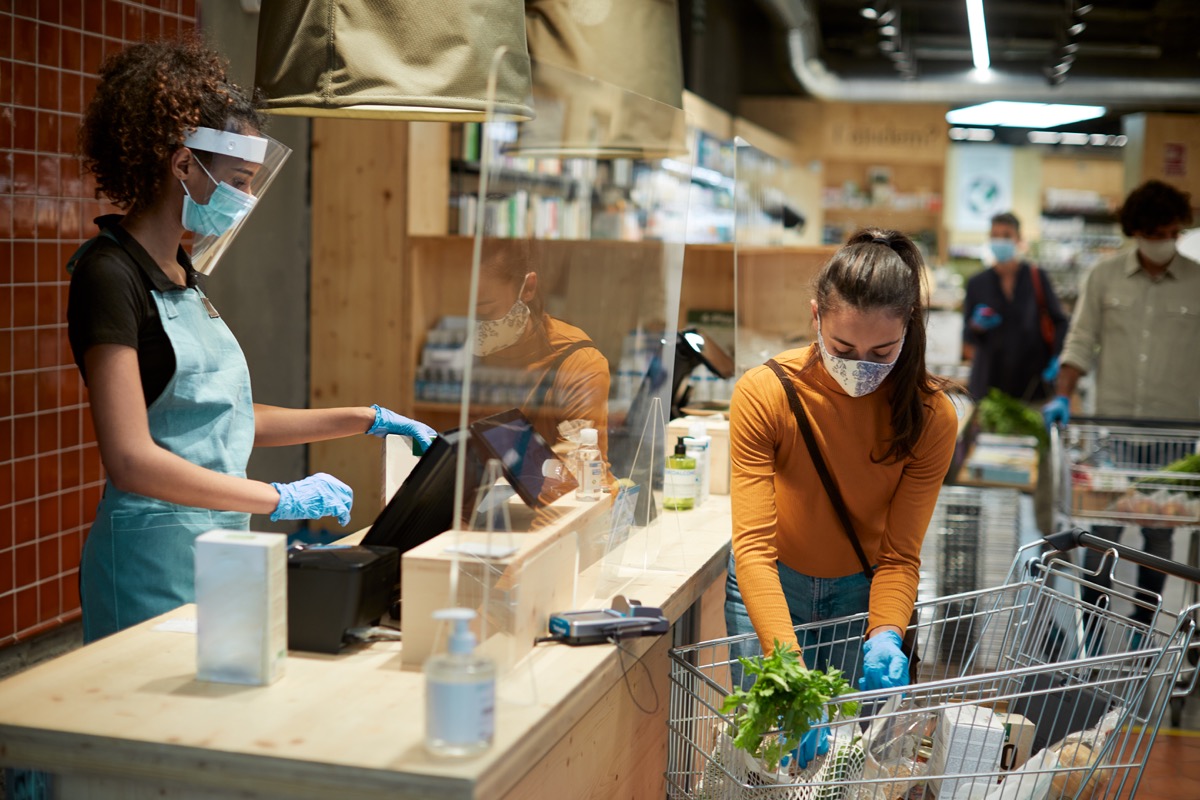States, including Texas, have followed the CDC’s recommendations for Phase 1a of the vaccination process, which includes healthcare workers, EMS workers, and residents of nursing and long-term care homes. But on Dec. 21, the Texas Department of State Health Services (DSHS) announced that it was choosing not to follow the CDC’s recommendations on who would be receiving the next round of vaccinations during Phase 1b, The Week reports. Instead of inoculating frontline essential workers and people over the age of 75, Texas has opted to give its next doses to people 65 and older as well as any other adults above the age of 16 with serious health conditions including cancer, chronic kidney disease, heart disease, obesity, organ transplant status, diabetes, and sickle cell disease, and those who are pregnant. “The focus on people who are age 65 and older or who have comorbidities will protect the most vulnerable populations,” Imelda Garcia, chair of the state’s Expert Vaccine Allocation Panel and DSHS associate commissioner for laboratory and infectious disease services, said in a press release. “This approach ensures that Texans at the most severe risk from COVID-19 can be protected across races and ethnicities and regardless of where they work.” Texas has yet to finish implementing Phase 1a of vaccine distribution. DSHS estimates that “it will likely be at least a few weeks” before the 1.9 million residents who fall under that category receive their doses and Phase 1b can begin. If you don’t live in Texas, read on to see when you might be next in line for your shot in most parts of the U.S., and for more recent COVID news, check out If You’re Not Doing This, Your Mask Won’t Protect You, Study Says. Read the original article on Best Life. At a Dec. 20 meeting, the CDC’s panel of experts with the Advisory Committee on Immunization Practices (ACIP) decided that Phase 1b should include people 75 years of age and older because they are at “high risk for COVID-19-associated morbidity and mortality,” the panel noted. This represents an increase from the previously recommended age of 65 as a cutoff, which Texas is adhering to. Adults between the ages of 65 and 74 should be inoculated in Phase 1c, according to the ACIP. And for more on the age group most affected by the new strain, check out If You’re Under This Age, You’re More Likely to Get the New COVID Strain. Essential workers represent the first time recommended groups have been split into different phases. After the meeting on Dec. 20, the ACIP decided that the group—which the Department of Homeland Security estimates to be as large as 90 million people—should see certain members such as police officers, firefighters, and corrections officers workers prioritized over others who cannot work from home, The New York Times reports. And for more vaccine news, check out If You’re Allergic to This, You Should Wait to Get the COVID Vaccine. Phase 1b also includes “food and agricultural workers, U.S. Postal Service workers, manufacturing workers, grocery store workers, public transit workers, and those who work in the education sector (teachers and support staff members) as well as child care workers,” according to the ACIP’s recommendations. The panel noted people in these professions have an “increased risk for occupational exposure compared with other essential worker categories, as well as the benefits to society of maintaining these essential functions.” Plus, some of these industries have “high proportions of some racial and ethnic minority groups who have experienced disproportionate COVID-19 incidence, morbidity, and mortality,” the ACIP points out. And for more regular updates on the vaccine and the virus, sign up for our daily newsletter. According to the ACIP recommendations, Phase 1c should include people between the ages of 16 and 64 who are most vulnerable to COVID because of high-risk conditions. Similar to the Texas list, the CDC defines this group as people with diabetes, cancer, heart conditions, obesity, chronic obstructive pulmonary disease (COPD), kidney disease, sickle cell disease, type 2 diabetes mellitus, and any immunocompromised persons from solid organ transplants. It also includes smokers and anyone who is pregnant. And for more COVID news, check out Dr. Fauci Just Gave a Warning About the New COVID Strain in the U.S.ae0fcc31ae342fd3a1346ebb1f342fcb Those essential workers not included in Phase 1b can get their vaccinations in Phase 1C, including workers “in transportation and logistics, water and wastewater, food service, shelter and housing (e.g., construction), finance (e.g., bank tellers), information technology and communications, energy, legal, media, public safety (e.g., engineers), and public health workers.” And for more on how badly the pandemic is hitting your area, check out This Is How Bad the COVID Outbreak Is in Your State.




